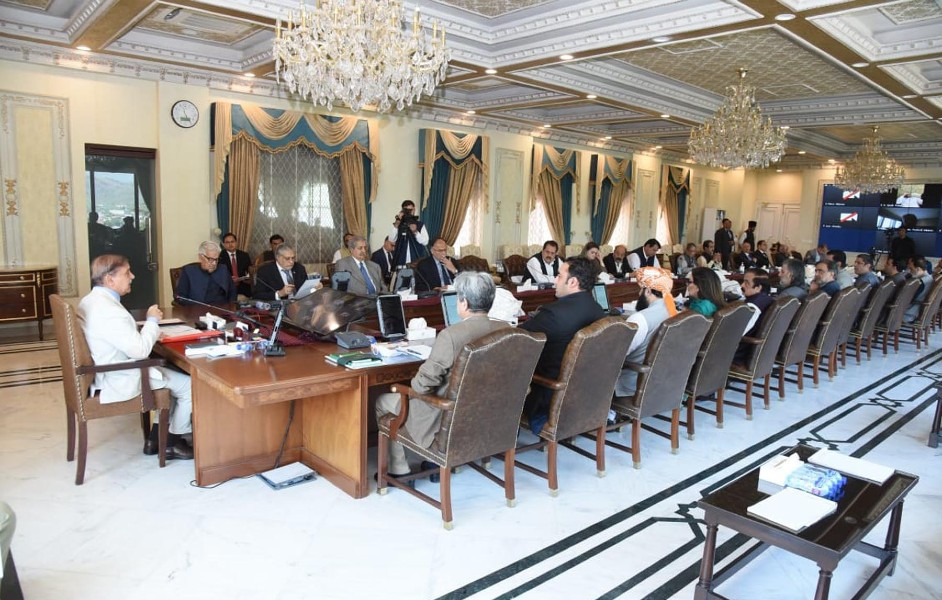
The cabinet has approved the Data Protection Bill that gives the right to authorities to erase the inaccurate and defamatory content from social media networks.
It also empowers a proposed commission to supervise, regulate and take appropriate actions against data controllers. It will be considered a civil court and will have the same powers as vested in such courts under the Code of Civil Procedure.
The Shehbaz Sharif-led cabinet has recently approved the Data Protection Bill which raises serious concerns among the multinational social media networks.
A look at the major features of the bill shows that it allows for the transfer of personal data outside of Pakistan only if certain conditions are met, including obtaining the explicit consent of data subjects and ensuring that the recipient country provides an adequate level of data protection.
It says that the federal government may by notification in the official Gazette make rules to carry out the purposes of the bill. The commission shall issue regulations for exercising its powers to carry out the functions of the commission, for internal working, appointment, promotion, termination, terms and conditions of its employees, which shall not contravene any provision of this Act or the rules made thereunder.
The bill provides for setting up the National Commission for Personal Data Protection to supervise, regulate and take appropriate actions against data controllers, and it is deemed to be a civil court and shall have the same powers as vested in such courts under the Code of Civil Procedure 1908.
The bill also gives special attention to the processing of children’s data that protects the rights and interests of a child and mandates their age verification and parental/ guardian consent requirement.
Under Rule 16 read with Rule 27 of the Rules of Business 1973, the Ministry of Information Technology and Telecommunication sought, in principle, approval of the federal cabinet for the e-Safety Bill.
E-safety bill
The cabinet was informed that various attempts had been made through rule-making under the Pakistan Electronic Crimes Act (PECA) (subordinate legislation) to regulate social media.
However, such attempts did not produce any fruitful results and most of the time those were challenged in courts as there was no statutory backing.
The PTA’s mandate under the Telecommunication (Re-organisation) Act 1996 did not extend to holistically regulate social media. No comprehensive provision existed, except for the referred section which only empowered the PTA to block access to the unlawful content.
Alongside the above issues, the government was also working to prevent the dissemination of unlawful content through social media platforms and implement Article 19 of the Constitution in true letter and spirit.
The existing legal regime for the prevention of electronic crimes including the online unlawful content requires updates to effectively deal with the issues in line with the well-established international standards. In this regard, the superior courts had also recorded their observations through various decisions.
Given the above, the cabinet was told, there was a dire need to establish a comprehensive, legislative framework, whereby responsible use of online services could be adequately ensured. Therefore, the Ministry of IT and Telecom proposed the adoption of e-Safety bill.
After receiving, in principle, approval of the cabinet, the draft of e-Safety bill will be prepared in consultation with the relevant stakeholders.
The proposed legislation, apart from looking after social media, would also ensure that social media platforms are not used to disseminate content that endangers the emotional and physical wellbeing of minors or show activity that sexually exploits or endangers children.
It would, inter alia, prohibit, including but not limited to cyberbullying, or “online harassment and threatening individuals; derogatory sexualized photo-shopped imagery or drawings etc; reveling in or mocking the death or serious injury of an identifiable; and content posted by vigilantes restraining or assaulting an identifiable individual”.
Published in The Express Tribune, August 12th, 2023.
Like Business on Facebook, follow @TribuneBiz on Twitter to stay informed and join in the conversation.






1730793476-0/bella-(1)1730793476-0-165x106.webp)










1730706072-0/Copy-of-Untitled-(2)1730706072-0-270x192.webp)
COMMENTS
Comments are moderated and generally will be posted if they are on-topic and not abusive.
For more information, please see our Comments FAQ